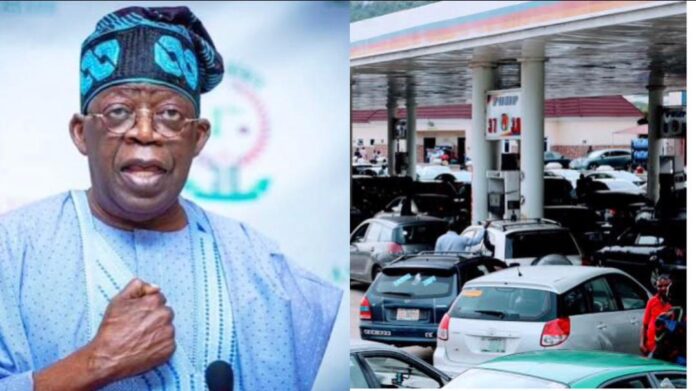THE NIGERIA’S OIL SUBSIDY ENIGMA: A PERPLEXING PARADOX
Insight101WithCCFrancis (#608)
Imagine a tenant who rents a house but owns three dilapidated buildings in dire need of renovation. Instead of investing in his properties, he borrows money annually to pay his rent. This absurd scenario mirrors the Nigerian government’s baffling approach to its oil refineries and fuel subsidy controversies. In a bizarre display of economic mismanagement, the Nigerian government has consistently prioritised fuel subsidies over investing in its own refineries. This inexplicable decision has led to a vicious cycle of dependency on imported fuel, crippling the nation’s economy.
Nigeria boasts of three refineries in Warri, Kaduna, and Port Harcourt, which have been in a state of disrepair for decades, yet squanders billions on fuel subsidies. The more one delves into the government’s operations, the more bewildering it becomes. The Warri Refinery, built in 1978, has a capacity of 125,000 barrels per stream, per day. Estimating the cost of building a similar refinery today, is challenging, but a rough estimate suggests $3 billion to $5 billion (approximately N7.9 trillion).
Examining the subsidy conundrum, the government’s recent expenditures are nothing short of alarming:
- 2020: ₦2.14 trillion
- 2021: ₦2.57 trillion
- 2022: ₦3.36 trillion
- 2023: ₦3.95 trillion
Cumulatively, these expenditures could fund the construction of a new refinery (if not two) like the Warri Refinery in just four years. It is astonishing that President Bola Ahmed Tinubu, after announcing subsidy removal, didn’t consider allocating these funds to build a new refinery. This begs the question: what is the rationale behind the government’s decision to prioritise subsidies over investments in its own refineries?
The answer lies in the complex web of interests and corruption that has plagued Nigeria’s oil industry for decades. The government’s reliance on fuel subsidies has created a culture of dependency, with powerful vested interests profiting from the status quo.
Nigeria’s economy is fuel-driven, and any fluctuation in fuel prices has far-reaching consequences in other sectors. From food to transportation, education, and healthcare, the removal of fuel subsidies has only exacerbated the situation, with prices skyrocketing and the masses bearing the brunt.
Despite this, the government continues its borrowing spree, leaving citizens bewildered about the subsidy fund. Our debt profile stands at approximately ₦121.67 trillion (US$91.46 billion). This staggering figure raises questions about the government’s fiscal responsibility and its ability to manage the nation’s resources effectively.
The Dangote Refinery, which has commenced fuel production, offers a glimmer of hope. As good as this may sound, good intentions may not always maintain their course, especially when human interests start showing their ugly heads.
This is why the government must rethink its approach to fuel subsidy, and prioritise constructing new refineries, to reduce over-dependence on the Dangote Refinery, preventing potential monopoly and absolute capitalism. This is indeed, very key.
I am CC Francis
… always better than yesterday











Hi there! This is my first visit to your blog! We are a team of volunteers and starting a new project in a community in the same niche. Your blog provided us valuable information to work on. You have done a extraordinary job!
I really appreciate this post. I have been looking all over for this! Thank goodness I found it on Bing. You have made my day! Thank you again!
I do agree with all the ideas you’ve presented in your post. They are really convincing and will definitely work. Still, the posts are very short for novices. Could you please extend them a little from next time? Thanks for the post.
I am impressed with this website , real I am a fan.
Everything is very open and very clear explanation of issues. was truly information. Your website is very useful. Thanks for sharing.
I want looking at and I believe this website got some really useful stuff on it! .